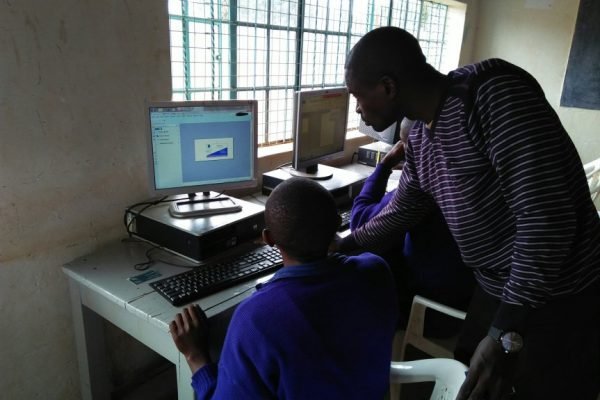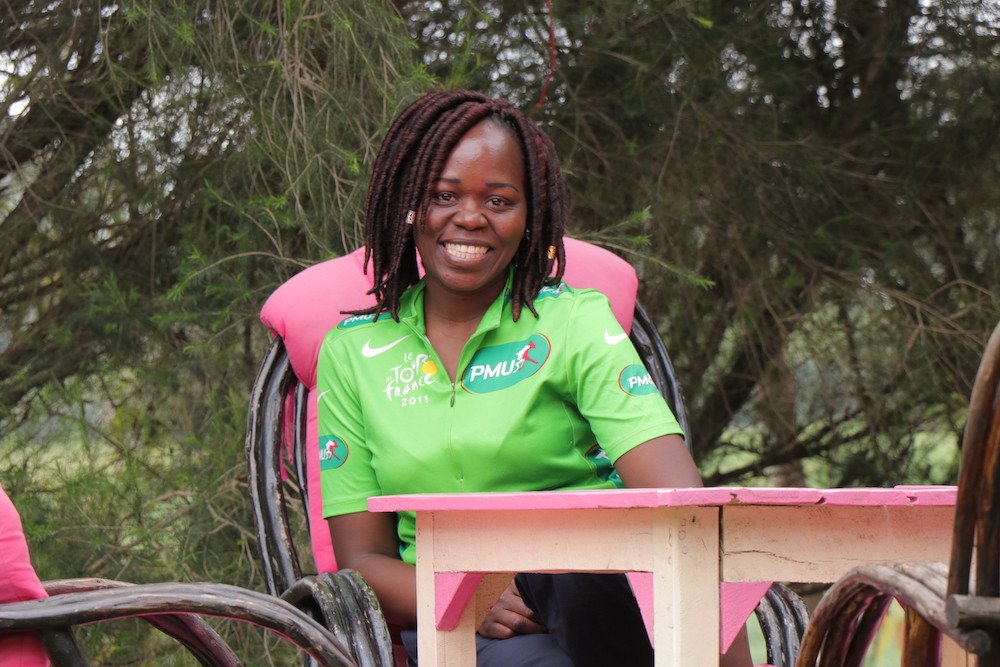Inside A Kenyan Halfway House For Juveniles Leaving Prison, Inspired By The Prodigal Son
Lifesong Kenya teaches job and computer skills to young men who have been imprisoned. Photo courtesy of Lifesong Kenya.
NAIROBI, Kenya— Like many Christians, James Ouma had heard the story of the Prodigal Son many times. The Christian parable came alive to him after he spent eight days in a police cell for a crime he did not commit.
Ouma, who was homeless at that time, was offered accommodation by a friend while he tried to get back on his feet. Unfortunately, the friend had a dark side to him that Ouma was not aware of until the day police came searching for the friend. Failing to find him, they arrested Ouma instead.
“I spent the next days in the cells at a Nairobi police station,” Ouma recalled. “While there I met some young men who had been arrested for various offences. In my talks with them, they told me that their biggest lack in life was a father figure. Many of them came from broken homes. I made a mental note of this.”
Once he was released, Ouma came face to face with the stigma that those who have had a brush with the law experience. During this time, he had been privately tutoring students in the estate where he stayed. However, when word went around that he had been arrested, the parents suddenly withdrew their children from the classes he taught.
“Nobody bothered to find out that it was a case of mistaken identity and that I had been wrongly arrested,” said the soft-spoken Ouma, 46. “To the parents, the fact that I was coming from the police cells meant that I am a criminal.”
It was from this moment that the young men he met in the cells came to his mind. “I asked myself, if just by being arrested and being released could earn me this kind of stigmatization, what about the young men I saw in there — some of whom were coming from broken homes?”
Ouma read and reread the story of the Prodigal Son. He focused on the part where the brother was disgruntled after their father threw a lavish party welcoming the man who was once lost but was now found. And then in 2018 he founded the organization Lifesong Kenya.
Lifesong is a halfway house that takes in young men who have left prison. They are taught life skills and helped to reintegrate into society. It is the only one of its kind offering such services to that age group in Kenya.
“The boys leaving prison come out with a lot of emotional scars, and since a good number of them don’t have fathers, I decided to play a father figure to them,” Ouma said. “It was not easy at the beginning.”
According to Ouma, he was also battling with the lack of a father since his father had died when he was young. All his life, Ouma wondered of how life would have been different had his father been alive.
“It was then that it hit me that these boys needed to be pointed to the ultimate father, God in heaven,” he said. “I began this ministry with lots of doubts, not sure whether I would measure up to the huge task I had placed on my shoulders.”
Since he relies on support from donors to run the house, Ouma said the running Lifesong has been challenging. Every year the organization does a cycling event as a fundraiser. This year’s route is planned from Nairobi to Arusha in Tanzania, a distance of approximately 270 kilometers (167.8 miles).
Sam Ouma — of no relation to James — is a beneficiary of the halfway house. For two years, Sam was an active cyclist helping the cause of Lifesong in fundraising. “Then things went south,” said the attendant for a Nairobi gas station. “I lost my job and my house, too. It was Lifesong that came to my rescue by offering to accommodate me as I sought for ways to get back on my feet.” He said he is proud of the work Lifesong is doing by giving otherwise desperate young men a second chance at life.
Cynthia Wendo. Photo courtesy of Lifesong Kenya.
Cynthia Wendo is James Ouma’s wife and a co-founder of Lifesong. Apart from helping with administrative work, Wendo teaches Chinese at a Nairobi university along with individual lessons. She has been the chase car driver since 2014 for the cycling fundraisers.
“Some people don’t want to involve themselves with us because we work with juvenile offenders, whom they see as outcasts and perpetrators who’ve done wrong and deserve to be punished as opposed to being given a second chance,” Wendo explained.
“We work with boys, and since most of them lack father figures, we would really like to work with men because they are the ones these young men really look up (to),” she said. “However, it’s their mothers and women who turn up or seem interested in wanting to change the lives of boys and young men.”
Other challenges are with the boys themselves. “These are people coming from a controlled atmosphere where even the time to sleep and eat is controlled. You see it when they are eating, and in many cases I have to teach them to eat in small bits instead of piling a plate full of food,” Ouma explained.
Wendo said that Lifesong’s long-term goal is to have self-sustaining projects that help support its programs and provide jobs to the young men.
She explained that when COVID-19 was rampant, she and her husband were forced to close the halfway house to comply with the Ministry of Health’s regulations.
“We are in the final stages of the next phase of the halfway project, and we are coming back in the new year bigger and better,” she stated.
The founder, James Ouma, is excited about the forthcoming cycling event despite all indications are that he will be cycling alone. “This is one way we are using to raise funds for the halfway house,” he said. “The idea is just catching up, and not many people have come out to lend support, but I believe that God will make a wa,y and at one point we will be self-sustaining.”
Ouma said there is still a lot of stigma around people who’ve been to jail and that many people feel uncomfortable around them. “This stigma fuels their reluctance to sponsor us because at the back of their mind, many think that by giving us funding they would be abetting crime.”
Lifesong has had faithful supporters like Kevin Ochieng, who has volunteered at the halfway house since 2018.
“It is very satisfying to see these young ones coming here when they are rudderless and we give them hope to start a new beginning,” said Ochieng, a musician. “However, it is not all plain sailing. There are some who even after passing through here refuse to embrace change, and they go back to their criminal ways. There is nothing much we can do in such cases but just to pray that they will change their ways and be good citizens.”
Tom Osanjo is a Nairobi-based correspondent for ReligionUnplugged.com. He is a former parliamentary reporter and has covered sports, politics and more for Kenya’s Daily Nation newspaper.


